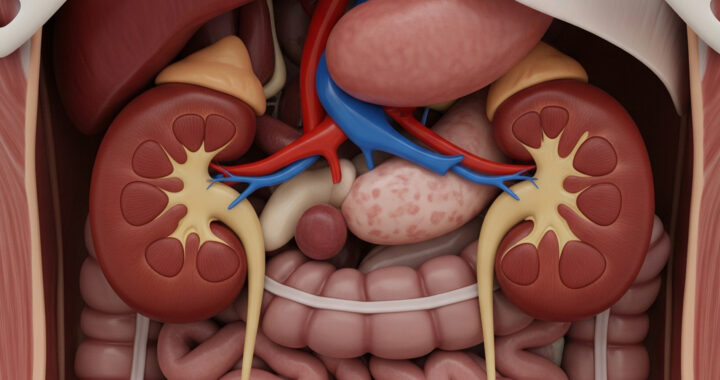Kidney transplant patients must take lifelong anti-rejection drugs to prevent their immune systems from attacking the transplanted organ. These medications help them live normal lives but have the notable downside of suppressing their immune responses and weakening their immune defenses. Long-term use of these drugs increases the risk of infections, cancers, cardiovascular disease, and metabolic complications. This impacts their health, quality of life, and overall longevity. But what if there is a workaround that allows these kidney transplant patients to return to living healthy lives without depending on anti-rejection drugs?
Groundbreaking Cell Therapy: MDR-101 Trial Achieves Immune Tolerance in Kidney Transplant Patients
Background
A landmark Phase 3 trial has shown that a novel donor-cell therapy, called MDR-101, can enable many kidney transplant patients to stop taking lifelong anti-rejection drugs. The clinical trial was led by Dixon Kaufman, who is a surgery professor at the University of Wisconsin-Madison and directs the University of Wisconsin Health Transplant Center, and was conducted in carefully selected patients beginning on 15 March 2018.
The trial specifically involved adult recipients of kidneys from two-haplotype HLA-matched living siblings. Patients were randomly assigned to receive either standard immunosuppression or a combination of non-myeloablative conditioning and MDR-101, which is prepared from the blood stem cells of the donors. This regimen aims to create mixed immune chimerism to allow the body to accept the new organ naturally.
In the particular MDR-101 group, conditioning consisted of administering rabbit anti-thymocyte globulin and 10 low-dose total lymphoid irradiation treatments. Moreover, 11 days after kidney transplantation, patients received the MDR-101 infusion. Steroids were stopped on the tenth day, mycophenolate by day 39, and tacrolimus was tapered off between 6 months and 1 year once donor chimerism was deemed sufficient.
Findings
Results were striking. 19 of 20 treated patients or 95 percent discontinued all immunosuppressive medications by about one year post-transplant. 15 of these or 75 percent remained drug-free for more than two years. In contrast, the control group continued lifelong medication, underscoring the potential of this therapy to transform transplant care in selected populations. The following are the specific findings from the trial:
• High Rate of Immunosuppression Withdrawal: 95 percent of MDR-101 recipients were able to discontinue all immunosuppressive drugs by about one year after kidney transplant. This is unprecedented in a controlled human trial for kidney transplantation. It also demonstrates the ability of the therapy to induce strong donor-specific tolerance in a majority of patients.
• Durable Drug-Free Survival in Most Patients: 15 out of 20 or 75 percent stayed drug-free for more than two years after withdrawal. This indicates that, in most cases, the immune tolerance was not only achieved but also maintained for a meaningful follow-up period. Take note that this is still not a definitive proof of lifelong tolerance without further, longer, and broader study.
• No Graft-versus-Host Disease Occurrence: No treated patient developed graft-versus-host disease despite infusion of living donor–derived immune cells. This disease is a feared complication of mixed chimerism approaches in which donor cells attack the recipient cells. The finding supports the safety of the conditioning plus MDR-101 regimen in the studied population.
• No Donor-Specific Antibodies Development: Donor-specific antibodies are a key sign of emerging immune rejection. These antibodies are produced and directed against the antigens of the donated organ or donor cells. None of the MDR-101 recipients developed these antibodies during follow-up. This supports the idea that immune tolerance was genuine, not simply drug-masked.
• Four Patients Resumed Immunosuppression: The therapy is not universal and needs adequate monitoring. Four kidney transplant patients resumed immunosuppression. The clinical trial identified four different reasons. These are recurrent IgA nephropathy, IgA nephropathy with rejection, rejection without recurrence of IgA nephropathy, and borderline biopsy changes.
Implications
Kidney transplant patients who underwent MDR-101 therapy reported improved quality of life compared to controls beyond clinical measures. Benefits included relief from the side effects and pill burden of lifelong immunosuppression, along with reduced risk of associated conditions such as diabetes, infections, and certain cancers. Patients described feeling healthier and more energetic after anti-rejection drug withdrawal.
However, despite encouraging results, experts caution that the therapy was tested only in a small and specific group. This group involved living sibling donors with complete HLA matching. Broader studies will be needed to determine whether MDR-101 can work effectively in less closely matched or deceased-donor transplants. The immune barriers in these cases are much greater due to the absence of biological compatibility.
Researchers are now planning larger and more diverse clinical trials. These include long-term follow-up studies to evaluate the durability of tolerance and the merits of the Phase 3 clinical trial. Nevertheless, if proven safe and effective across broader patient groups, MDR-101 could revolutionize transplant medicine by removing the lifelong reliance on immunosuppressive drugs and their significant long-term health risks.
FURTHER READING AND REFERENCE
- Kaufman, D. B., Akkina, S. K., Stegall, Mark. D., Piper, J. B., Gaber, A. O., Asch, W. S., Busque, S., Stites, E., De Vera, M., Srinivas, T. R., Alonso, D., Shah, A., Patel, A., Mai, M. L., Chavin, K. D., DebRoy, M., Jittirat, A., Costa, N., Cooper, M., … Brennan, D. C. 2025. “Induction of Immune Tolerance in Living Related Human Leukocyte Antigen–Matched Kidney Transplantation: A Phase 3 Randomized Clinical Trial.” American Journal of Transplantation. 25(7): 1461-1470. DOI: 1016/j.ajt.2025.01.044
